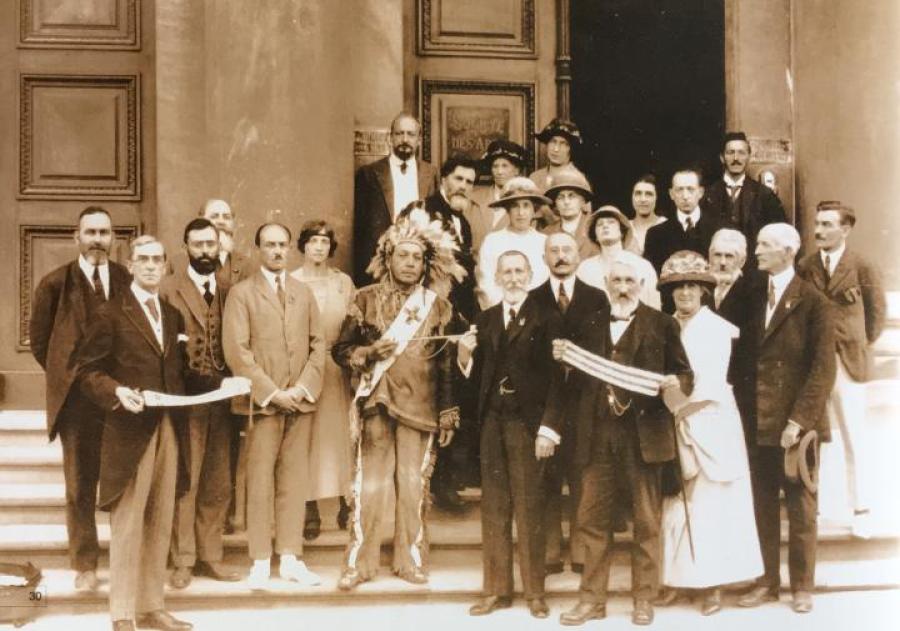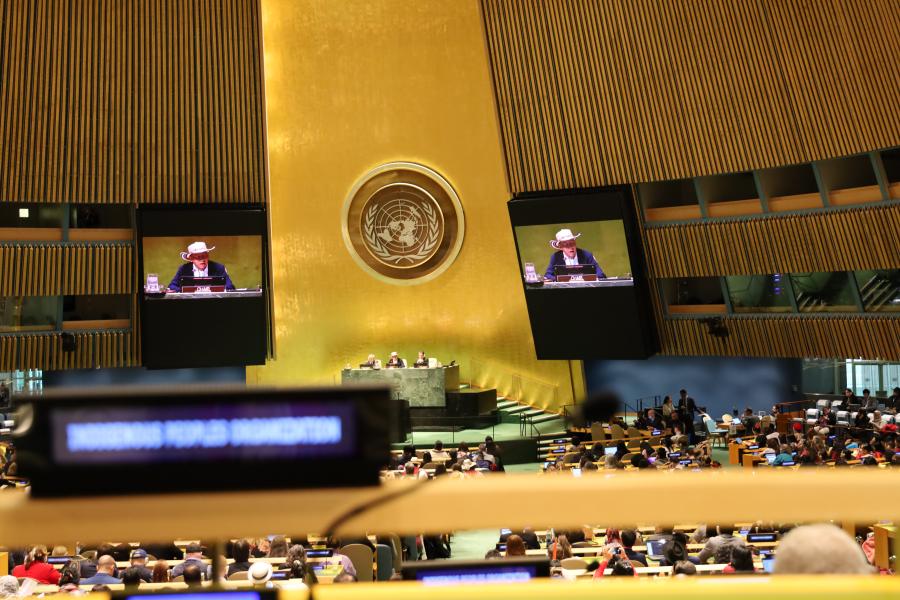We are deeply saddened to report the death of Ellen Lutz, who stepped down as executive director of Cultural Survival at the end of August because of the metastatic breast cancer that eventually took her life. She died on November 4 at the age of 55, surrounded by her husband, Ted Macdonald, and her children, David and Julia. Her end was peaceful and painless, and she met her death as she lived her life: with unbending dignity and unflinching courage.
Ellen became director of the Cultural Survival in 2004 and transformed the organization over the next six years, strongly emphasizing human rights and advocacy, areas in which she had an international reputation. She led Cultural Survival into Native American language revitalization; she started a program to submit Indigenous rights reports to the UN Human Rights Council; she launched our first on-the-ground human rights investigation, in Kenya; she oversaw Cultural Survival’s merger with Global Response; she helped organize congressional hearings on Indigenous rights; and she moved the organization away from development work and project sponsorship, building and strengthening Cultural Survival’s own programs. And that’s the short list. As her disease progressed, she actually increased her efforts, and in addition to presiding over Cultural Survival’s most ambitious year yet, she co-edited two pioneering books, Prosecuting Heads of State (Cambridge University Press) and Human Rights and Conflict Management in Context (Syracuse University Press).
Ellen’s concern for human rights began when, as a 15-year-old exchange student to Uruguay, she witnessed the onset of Uruguay’s state-sponsored “Dirty War,” and supported the international human rights movements that such actions spawned across Latin American during the 1970s. After graduating from Temple University in 1976, she went on to earn a master’s degree in anthropology from Bryn Mawr in 1978, then took a law degree in international law and human rights from Boalt Hall Law School at the University of California at Berkeley.
Ellen’s interest in Latin America continued as professional work with Amnesty International in San Francisco and Washington, D.C. From 1989 to 1994 she headed the California office of Human Rights Watch, where she conducted research and published on little-known but extensive human rights abuses in Mexico, and where she was co-counsel in two groundbreaking human rights cases in U.S. courts, against the infamous Philippine dictator Ferdinand Marcos and Argentine general Suarez-Mason.
Moving with her family to Westborough, Massachusetts, in 1994, she helped to set up the Center for Human Rights and Conflict Resolution at the Fletcher School of Law and Diplomacy at Tufts University. She was the first executive director for that center and also taught international law, human rights, and mediation at Tufts, Harvard, and the University of Massachusetts, and she wrote widely. One of her students, now a professor at Occidental College, recalled how “warm and desirous she was of connecting to students in an often cold institutional world; a marvelous force of nature.”
As news of Ellen’s death circulated, heartfelt tributes to her poured into Cultural Survival’s offices from every corner of the world, reflecting both her wide circle of friends and the enormous impact of her human rights work. Cultural Survival board member Westy Egmont spoke for many—including the Cultural Survival staff—when he wrote, “Ellen has been one of my heroes. She taught so many of us that no tyrant should go unchallenged and no small group should be powerless. She lived large, fought with a superior intellect to wrest justice out of life’s most unjust developments, and never let her own self-interest interfere with those efforts. Ellen came to all such engagements with total humility, genuine concern, apparent knowledge, and a progressive set of values that all worked together beautifully. We have lost a champion, an esteemed leader, a hero of all we aspire to do in the name of justice. I have lost a dear friend.”
She will inspire all of us for many years to come.


